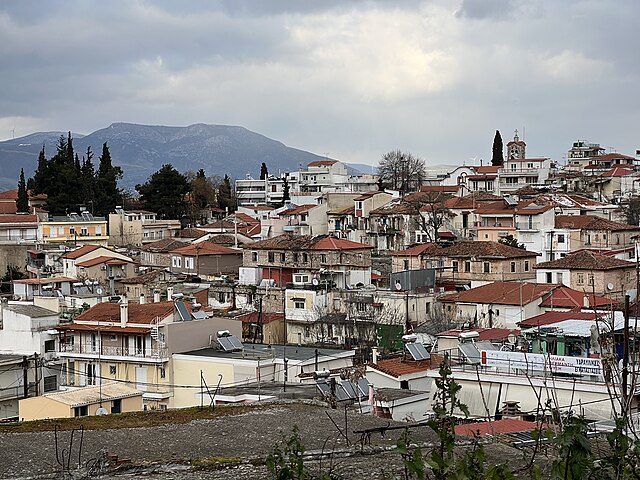Epaminondas was a Greek general and statesman of the 4th century BC who transformed the Ancient Greek city-state of Thebes, leading it out of Spartan subjugation into a pre-eminent position in Greek politics called the Theban Hegemony. In the process, he broke Spartan military power with his victory at Leuctra and liberated the Messenian helots, a group of Peloponnesian Greeks who had been enslaved under Spartan rule for some 230 years following their defeat in the Third Messenian War ending in 600 BC. Epaminondas reshaped the political map of Greece, fragmented old alliances, created new ones, and supervised the construction of entire cities. He was also militarily influential and invented and implemented several important battlefield tactics.
Epaminondas, depicted as an idealized figure on the grounds of Stowe House
Stater of the Boeotian League minted c. 364-362 BC by Epaminondas, whose name EΠ-AMI is inscribed on the reverse
Epaminondas defending Pelopidas at the siege of Mantinea (385 BC), picture by William Rainey (1900).
Messenia in the classical period
Thebes is a city in Boeotia, Central Greece, and is one of the oldest continuously inhabited cities in the world. It is the largest city in Boeotia and a major center for the area along with Livadeia and Tanagra.
View of Thebes.
Remains of the Cadmea, the central fortress of ancient Thebes
Archeological museum of Thebes
Theban workshop (Oinochoe type), 7th century BC








